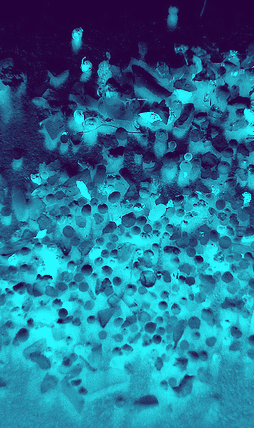Big players push tiny plastics out
 Supermarket giants Woolworths and Coles say they will remove products containing microbeads - tiny plastic particles that can cause some serious damage.
Supermarket giants Woolworths and Coles say they will remove products containing microbeads - tiny plastic particles that can cause some serious damage.
Microbeads or microplastics are found in common scrubs, face washes, soaps and toothpastes, and wash by the billions into waterways across the country, often unbeknownst to the product users.
Studies suggest there are about 300,000 microbeads in an average bottle of face scrub, where they are sometimes added as an abrasive but usually contribute nothing more than decoration.
While many consumers believe they are buying products containing exfoliants like apricot kernels and walnut shells, the reality is that these products are often packed largely with microbeads.
“I have to confess, it's one of those issues which emerged later than it should have,” Environment Minister Greg Hunt told the ABC this week.
“We want to work with industry to do this. Already Coles and Woolworths have responded and committed to banning microbeads from their shelves by the end of 2017.
“But we want to see a full national phase out.”
In the US, legislators have committed to introducing a formal ban of microbead production by 2018.
Professor Emma Johnston from the University of New South Wales led a survey that found 'big' microplastics in fish from Sydney Harbour, as well as in soil and water samples from 27 different sites around the harbour.
She says the risks are profound.
“The problem with microplastics is that once they are in the waterway and in the sediments, we can't get them out,” Professor Johnston said.
“There is no way of filtering all the sediments of every harbour in Australia to remove those plastics.
“I think it's time that we removed them from all non-essential products.
“The full extent of their toxicity is still unknown.”








 Print
Print